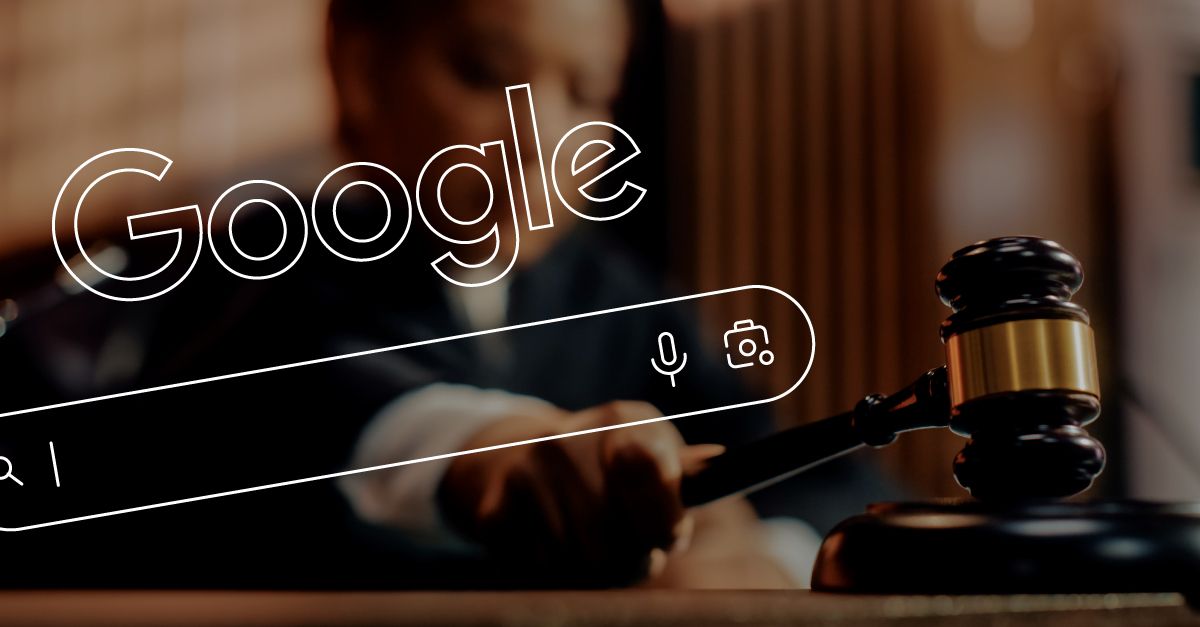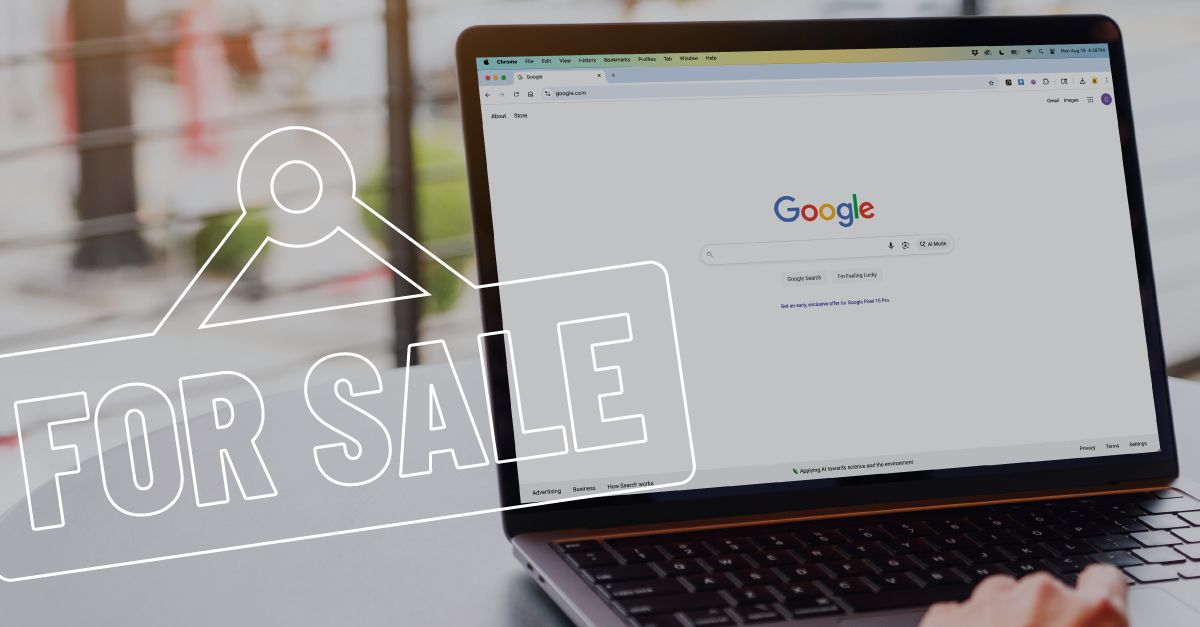
The first of two lawsuits against Google has finally reached its conclusion; found guilty of antitrust behaviors, it’s now time for the tech giant to face the music with a ruling on the Search case. Did the DOJ get its wish to have Chrome sold? How will this actually help Genius Monkey’s programmatic targeting, and what can users expect to come from the government’s required remedies? Let’s dig in and find out what advertisers need to know about this landmark ruling:
The Context: Stakes and Possibilities
Google is the undeniable dominant force in the online digital ecosystem, controlling approximately 90% of the global search market. Google always claimed that its power came from a superior product, but many have wondered if the tech giant was illegally maintaining its power. In October 2020, the DOJ and several states filed a lawsuit against Google.
In September of 2024, Google was officially labeled a monopoly by a United States District Judge in two marketplaces: “General Search Services” and “General Search Text Advertising.” The court showed that Google paid vast sums of money for exclusive deals that made it impossible for others to compete in the space. The company leveraged its power and popularity to inflate advertising prices in many instances.


Shortly after this first case, Google lost another suit on its use of advertising technology. The tension rose when the DOJ released a statement suggesting vast, sweeping changes to limit Google’s power.
These possible demands included:
- The sale Google’s browser, Chrome
- The sale of Google’s mobile brand, Android
- Allowing Android phone users to select a default browser
- Sharing consumer data with advertising platforms
- Banning exclusive web content
- Increased transparency in the bidding and selection process for text ads
Leading up to the judge’s ruling, Perplexity further added to the drama by offering a massive sum for Chrome. Other entities quickly began expressing interest in the browser as well, even though no official order of divestment was given. All eyes were on presiding District Judge Amit Mehta, who released the ruling on September 2nd, 2025.
The Court’s Ruling in Detail
The full court ruling can be found linked here; reader beware, it’s a 230-page beast of a document. Here are the most important parts:
Perhaps the most notable point in the ruling was no requirement for Google to sell Chrome or Android. Judge Mehta wrote: “Google will not be required to divest Chrome; nor will the court include a contingent divestiture of the Android operating system in the final judgment.”


Expanding on his decision, Mehta wrote: “The court’s task is to discern between conduct that maintains a monopoly through anticompetitive acts as distinct from ‘growth or development as a consequence of a superior product, business acumen, or historic accident.’”
Continuing, he said: “After two complete trials, this court cannot find that Google’s market dominance is sufficiently attributable to its illegal conduct to justify divestiture."
Google will also be allowed to continue paying partners (like Apple and Samsung) to preload or feature its products. Judge Mehta commented: “Cutting off payments from Google almost certainly will impose substantial—in some cases, crippling—downstream harms to distribution partners, related markets, and consumers, which counsels against a broad payment ban.”
However, Google will be barred from exclusive deals to make Google the default search engine on phones and other devices.
Google would not be required to share advertising data with competitors. However, the court has ordered Google to make other information available to “Qualified Competitors,” including search index and user interaction data.
Google is required to be transparent in its ad auctions to prevent bid inflation and other sneaky tactics. Judge Mehta wrote: “Google will be compelled to publicly disclose material changes it makes to its ad auctions to promote greater transparency in search text ads pricing and to prevent Google from increasing prices by secretly fine-tuning its ad auctions.”


Finally, Judge Mehta required the creation of a technical committee within the next 60 days. This group will oversee Google as it carries out these orders over the next six years, though it’s unclear who will sit on this committee.
What Happens Next?
Google has already appealed the ruling, as it has and will with every shred of litigation against it. “We have concerns about how these requirements will impact our users and their privacy, and we’re reviewing the decision closely,” the company said.
As they stand, these remedies won’t knock Google out of its top position, nor do they offer much help to competitors hoping to lead the AI-driven internet of the future. Neil Chilson, head of AI policy at the Abundance Institute, noted, “I think that for the biggest of the companies that Google is competing with in the AI space, these remedies won’t be a big value add."
The requirement to share some search data means smaller entities could potentially build a competitive search engine or train large language models for AI services. Google will remain a large player in the AI space, but this will make it easier if another up-and-comer tries to step up to the plate.
How Does This Affect Advertisers?
The Judge ordered Google to make its search data available to third-parties, which makes it possible for advertising platforms to use consumer data without going through Google’s services. It isn’t yet clear what the cost will be to access this data, and the rollout is likely to take some time before it’s available.
This will allow Genius Monkey users to utilize Google-gathered data on other ad networks, improving audience targeting and potentially lowering costs. Users can expect more Genius Monkey updates as the court’s orders are implemented and the data available to campaigns expands.


Google will likely remain the most popular search engine on mobile devices, and Chrome will likely continue to dominate other browsers. While the outcome might be more muted than it could have been, advertisers are still likely to benefit from Google sharing its data.
This isn’t the end for Google’s court days; an inevitable appeal will be followed by ruling of a completely separate antitrust case against Google regarding its advertising technology. The outcome of that case will likely have more direct results on the day-to-day of advertisers.
Whatever the ultimate results of these cases, Genius Monkey will remain vigilant and ready to adapt to whatever advertisers need to succeed in the industry. For more information on Google’s court challenges, check out the linked article here!
If you’re ready to start increasing conversions and lowering costs, it’s time to get in touch with Genius Monkey today!




